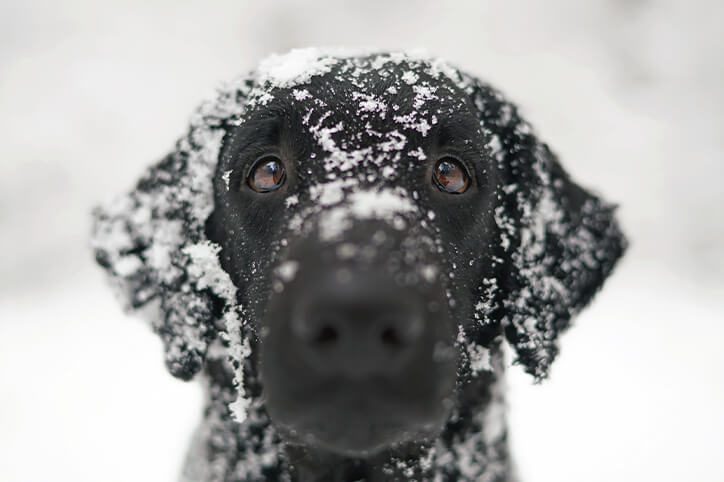Common Winter Pet Emergencies in Centennial, CO

As pet owners in Centennial, Colorado, we all know that winter brings its own set of challenges and adventures for our pets. It’s important to be aware of the common winter pet emergencies so you can keep your beloved animals safe and healthy. This blog will explore various winter-related emergencies that pets might face and offer advice on how to prevent them. If you ever feel concerned about your pet’s health, don’t hesitate to reach out to Festival Animal Clinic at (303) 850-9393 for guidance and support.
Hypothermia and Frostbite
In the cold months, pets are at risk for hypothermia and frostbite, especially those with short coats or who are not accustomed to colder climates. Hypothermia occurs when a pet’s body temperature falls below normal, leading to symptoms like shivering, lethargy, or even more severe conditions if not addressed. Frostbite, on the other hand, damages the skin and tissues, particularly on ears, paws, and tails.
Preventive Measures
To prevent these conditions, keep your pets indoors during extreme cold. When they do go outside, consider sweaters or coats for short-haired breeds and limit their time outdoors. Also, regularly check their paws for ice accumulation or injuries. If you suspect hypothermia or frostbite, contact Festival Animal Clinic immediately.
Common Winter Toxins
Winter holidays bring decorations and foods that can be harmful to pets. Chocolate, xylitol (a sweetener found in many products), and certain plants like poinsettias are toxic to pets. Additionally, antifreeze, which is commonly used in vehicles during winter, is extremely poisonous and can have fatal consequences if ingested.
Prevention and Awareness
Always keep chocolates, sweets, and dangerous plants out of your pet’s reach. Be vigilant about cleaning up any spills, especially of antifreeze, in your garage or driveway. If you think your pet has ingested something toxic, call Festival Animal Clinic or a poison control center for pets right away.
The Cold Weather Impact
Cold and damp weather can aggravate arthritis in pets, particularly in older animals. Signs of discomfort include limping, difficulty moving, or reluctance to play or climb stairs.
Managing Arthritis in Winter
To help your pets, provide a warm, comfortable place for them to sleep, away from drafts. Gentle exercise can help keep their joints mobile, but avoid strenuous activities, especially in the cold. If you notice signs of arthritis, a visit to Festival Animal Clinic can provide options for pain management and care.
Weight Gain
During winter, pets often have less opportunity for outdoor exercise, which can lead to weight gain. Excess weight puts additional strain on their bodies, including their joints and internal organs.
Maintaining Healthy Weight
Monitor your pet’s food intake and adjust it if necessary. Indoor play and short, frequent walks can help keep them active and healthy. Regular check-ups at Festival Animal Clinic can help monitor their weight and overall health.
Ice-Related Injuries
Icy sidewalks and streets pose a risk for slips and falls, which can lead to sprains, fractures, or other injuries in pets. Ensure your pets have good traction on icy surfaces – consider booties to protect their paws and provide grip. Always supervise them on walks and keep them on a leash to prevent accidents. If your pet does get injured, a prompt visit to Festival Animal Clinic is crucial for proper care and recovery.
Contact Festival Animal Clinic in Centennial for Any Winter Emergency
Remember, if you encounter any of these winter pet emergencies or if you’re ever in doubt about your pet’s health, Festival Animal Clinic in Centennial, Colorado, is here to help. Call us at (303) 850-9393 for assistance or to schedule an appointment. Stay safe and enjoy the winter season with your pets!
